#i don’t have many meltdowns because i keep myself very isolated (to avoid them)
Text
i had an autistic meltdown today and like i’m really thinking i’ll have to go back to therapy or see a psychiatrist and get an opinion on proper treatment because i can’t really do this no more, i’m breaking, i’m jokerfying
#i don’t have many meltdowns because i keep myself very isolated (to avoid them)#but like i am trying to stop isolating and actually start going out in the world#i can’t do that if i’m so sensitive to it that i have a meltdown every time. i cant. this shit sucks#i love having zero support network for my autism bc my parents don’t believe that i have it#i love it sooooooo much babygirl#so i have no coping mechanisms except to isolate and hide my symptoms so i’m not yelled at for displaying them#god fucking dammit#i need a psychiatristtttt#dumbhead speaks
2 notes
·
View notes
Note
I dont know how to properly frame my question, but autistic!lalli has always been a headcanon I readily claimed as canon in my heart because it MAKES PERFECT SENSE in my brain. But besides me, what I'd like to ask is what traits/habits/behaviors Lalli has that immediately clicked to you that he was autistic? Or showed that he was? Like, gush to me about them
(this is mainly so I can get better at writing him and also because I'm curious to know! Actually, SLAP me with EVERYTHING about Lalli, if you can 😂 I'd love to actually know everything)
This topic was also requested by @the-story-isnt-over-yet ! This post is for both y’all :)
I’m going to try to keep this organized, but we’ll see how successful I am. First up, I’ll talk through Lalli’s general traits, then the traits I picked out quickly and resonated with, and then I’ll touch on a couple other things that stand out to me!
Sensory Experience
Lalli repeatedly displays sensory-avoiding and sensory-seeking behaviors. He likes soft textures and sweets—he picks himself up a big ol’ fluffy cloak in Adventure 2, and his mind conjures him a nice and soft one in his dreamspace, and we all know how he feels about pastries. He’s always willing to eat sweets and breads, which suggests that Lalli has samefoods as well (samefoods are like a comfort food, but taken up to eleven; foods that always sound good, sometimes to the point that they’re the only thing an autistic person can eat.) It’s just a single line, but where Lalli tells Emil that he hates blueberries, it makes me think of a very specific picture (I’ll link it later if I can find it.) Blueberries, and other fruit, don’t taste the same every time! Some are sweet, some are sour, some are mushy, some are grainy, and some are juicy. When you don’t know what to expect from a food, this makes it hard to want to eat it, even if some aspect of the flavor is good.
But I digress! One thing that I resonated with right away with Lalli is that he clearly has sensitive proprioceptive awareness. That just means the sense of where your body is in space. When Lalli sleeps or hides under a bunk or table, he’s reducing his sensory input. Being in a small space is comforting because there’s less space to be aware of.
Lalli is also sensitive to touch, which is a fairly easy trait to spot. He doesn’t like the friendly punches the crew delivers, and even balks at Emil’s touch when he’s upset. There are exceptions, but those exceptions come at times when Lalli is calm and expecting the touch to occur.
And sound! Lalli doesn’t like loud sounds, in particular loud people (sorry, Sigrun.) This is a great place to talk about Lalli’s shutdowns. We don’t see Lalli experience meltdowns, but he does have a shutdown a couple times. Shutdowns are a response to stress and sensory overload. It looks different for everyone, and since it’s internal, it’s hard to tell how exactly Lalli’s shutdowns run. However, we see him cover his ears to block out sound and hum (“mrr!”) in order to calm himself down. He’s just trying to regulate his sensory experience. His humming is also an example of vocal stimming.
Social Difficulties
Lalli definitely has social difficulties, but it can be hard to tell which difficulties are due to the language barrier and which are due to his brain chemistry. But! Paying attention to the first part of the story, when he’s with all Finnish-speakers, as well as the dream sequences can really help us hone in on those traits.
Lalli, in general, doesn’t understand other people beyond what they say. He doesn’t understand body language or sarcasm—he doesn’t get why everyone’s punching him, he doesn’t know when Tuuri’s joking and when she’s serious, and he stares at Emil because he’s curious about him and doesn’t realize it’s impolite. He doesn’t notice when Emil is rude and doesn’t understand social scripts like saying “thank you” and “you’re welcome.” When he wants to express approval or comfort, he gives a soft pat to the other person. More touch than that might be too much for him, but he does want to express something, and pats are an excellent tool in that way.
Lalli’s inability and/or refusal to learn or use the crew member’s names also gives us insight to how Lalli faces social conundrums. To him, everyone else is more distinguishable by the epithets he gives them—their names don’t mean anything. It’s like naming someone “flower delivery guy” in your phone contacts instead of “Greg.”
Lalli also isn’t easily frightened. The only times we see him be really afraid is when someone he loves is in immediate mortal danger. The everyday stuff like trolls and omens don’t scare him, which is certainly in part just because he’s used to these things. Trolls and spirits are an everyday part of his life. But an unusual lack of fear is a common autistic experience as well, so I suspect it goes beyond Lalli’s accustomation.
Other Traits
A couple other things that didn’t fit into either of the former categories! First of all, the rubik's cube. That’s just autistic solidarity. Emil picked up a stim toy for his bf, we love to see it.
But also, Lalli relies a lot on his routine. That’s probably why the military, and scouting in particular, suited him. He has his own personal routine that is the same day in and day out. He tries to keep a routine on the expedition, but isn’t able to, which increases the amount of stress he’s under. Nothing is predictable, which automatically makes everything more stressful.
Relationships
I also think the dynamics of Lalli’s different relationships are super interesting and really highlight some things that aren’t often covered in media with autistic characters. It’s super heartbreaking the way Onni and Tuuri don’t seem to understand Lalli. Tuuri especially doesn’t understand why Lalli does the things he does, and doesn’t seem to make any effort to understand, which is sadly a common experience for many autistic people.
On the other hand, Emil’s reactions are the complete opposite. As I put it to a friend once, Emil often makes mistakes with Lalli, but he never crosses the same boundary twice. He lets Lalli have agency in their relationship. If Lalli has a boundary that inconveniences Emil, he doesn’t complain about it, he simply adapts. Lalli has very specific needs in his relationships, needs that are both unusual and difficult for him to communicate, so it’s far easier for him to just default to being a loner.
Me & Lalli
On a personal level, I have a whole lot of these traits. I stim with soft things, I’m sensitive to sound, I tend to be hypersensitive with my proprioceptive sense, I had to intentionally teach myself to read body language (I work as a theatre artist, which helped a lot,) I’m not easily frightened, I’m sensitive to touch and sound, and I certainly struggle socially. Furthermore, I actually had an untreated sleep disorder until about a year and a half ago, so I deeply resonated with Lalli’s chronic exhaustion.
Truth be told, I headcanoned Lalli as autistic from his introductory card, and I knew he was autistic within ten pages. Chronically exhausted and doesn’t know what’s going on? Mine now.
The Autism Metaphor
I talk about this some in my autism and superpowers post, but I really love that Lalli is both autistic and is living an autistic metaphor. It’s not uncommon for characters who can see or sense other things (ghosts, spirits, emotions, danger, etc.) to read as autistic, because that’s what autism often feels like. Our sensory experience is so distinct and we are so aware of it that it can feel like a superpower at times--in a good way and in a bad way. We’re living in a sensory world that a lot of neurotypical people don’t understand. Furthermore, these kinds of powers or sensitivities usually come with an isolating social impact in these stories, which only strengthens the metaphor for autism.
But Lalli has both actual autism and is a mage. He sees spirits and omens and can sense when trolls are near, and also is sensitive to sounds and doesn’t like to be touched. These things aren’t related to one another, but they all read as being in the same category, which both deepens the metaphor and makes him really interesting as an autistic character.
This is also why Onni readily reads as autistic as well. We don’t have as much direct evidence for him, and in many ways his trauma seems to run much deeper than it does in Lalli and Tuuri, so it’s hard to separate out what’s a trauma response and what’s an autistic response. Overall, I’m quite a fan of “no Hatakoinen is neurotypical,” but that’s a post for another day ;)
I’ll also be posting a panel or two of an instance where Lalli is displaying an autistic trait each day for the month of April!
#stand still stay silent#sssscomic#lalli hotakainen#autismacceptancemonth2021#meta#actually autistic#long post
58 notes
·
View notes
Text
Dear NTs: We aren’t perfectionists for no reason.
Can I just say something? I hate how society frames autistic people’s perfectionism or fear of failure as either “intrinsically sourced” or “irrational”. It dismisses the clear cause that neurotypicals want to avoid talking about.
For one, naturally fearing failure is literally impossible, because failure is a social construct. When we are born, we have no concept of what failure even is. We are taught what failure is by the people around us. As we grow, we pick up on what others perceive or refer to as “failures”, and that is when we begin to adjust our thinking accordingly. No mind is wired to fear such constructs from the beginning, not even autistic ones. In fact, failure is probably a construct most autistic babies and toddlers learn and internalize super early. We literally go through a process of repeatedly being perceived as “failing” in certain areas as we show undesirable deviations from the norm. We are put in extensive therapies to teach us how to react and do things “correctly” and we are judged or even traumatized if we don’t conform.
Now, let’s s fast forward. An autistic five year old is having a meltdown over losing a game of, let’s say... Chutes and Ladders, for example. They are crying, throwing the board, stepping on the pieces, accusing others of cheating, everything. Why might they be doing this? Most neurotypicals will assume that autistic people are upset for the same reasons they would be: they must’ve wanted to win to feel socially superior to their peers. That results in many NTs trying to let autistic people win at everything, but while giving any kid a prize will bring temporary pleasure, this is not the core of the problem. We can see that as other failure related meltdowns happen even when autistic people aren’t directly competing with anyone else. The frustration with our performance can happen in complete isolation from any competition.
Myself in particular, even as an adult, get these meltdowns when I am totally alone, and when nobody can even see what I have supposedly “failed” at. I am often told it must be some sort of a confidence problem inherent to my personality, because nobody is placing such high expectations on me except for me, right? Now that I think about it, I don’t think so. I think this perfectionism all autistic people seem to develop in one way or another isn’t a symptom or internal part of our condition. I think it is a coping mechanism in response to trauma that is being applied in situations where it may not make sense to outside observers. The urge to fit in is built into humans, and some studies show we feel the equivalent of physical pain when experiencing abandonment or social exclusion.
Being unwanted or undesired by peers could lead to all sorts of horrible deadly situations when you actually have to think about it. Early humans could be eaten by predators if they were left alone. Ostracized witches and infidels were tortured or burned at the stake. Even people who look slightly “off” to the majority in modern society could be shot and killed by police despite not committing any crime. NTs don’t have to think about that as early as autistic people do, because autistic babies and toddlers have traditionally been demonized and stigmatized. Even if nobody outwardly says they see autistic people as dangerous, one mention of autism in a school shooter sends everyone into hysterics. In essence, autistic people learn from trauma to subconsciously equate any sort of “failure” to a possible death sentence, even when to NTs that failure seems laughably trivial.
That autistic kid who lost that board game, they are so freaked out because last time they lost a game of catch on the playground, the other kids said they sucked and couldn’t go on that side of the playground anymore. That autistic teen who never does their schoolwork has been repeatedly told they will get nowhere if they keep acting like a “failure”, and have decided that never trying is better than failing even once. That autistic young adult who worries others will one day throw them on the street because only those who work hard enough make it in the “real world” (AKA me)... They aren’t being unrealistic or dramatic. All of these people have realized the reality of how powerful the social majority is in deciding who gets to live and die. They have realized they’re inherently at a disadvantage because they can’t perform as well, and thus hold themselves to high standards to avoid further pain and trauma.
Neurotypical people never have to think about such things from an autistic perspective, and see our perfectionism as irrational and a result of our disorder, rather than what it really is: a result of them as the majority teaching us failure is inherent to our very being, and how that failure could get us killed. We never know what failure of ours could result in further ostracism and rejection, so we overreact to every single perceived failure others have taught us to internalize. Even if NTs say “it’s okay to make mistakes”, it is rarely okay for those like us to make mistakes. We know they only accept certain mistakes, and others are lethal. We aren’t perfectionists for no reason. Stop pretending we are.
13 notes
·
View notes
Text
So I was watching Fitzsimmons clips on YouTube, and noticed a scene I had quite forgotten existed (given that I watched the first season in one day with my friends, it’s no surprise I didn’t remember this part) but I wanted to talk a bit about 1x20. (This will be an in-depth Fitz-centric analysis of that scene, just to let you know.)
I’d like to make clear from the outset, this is completely my own opinion based on my own experiences. Other people may read the scene differently and that is completely their own opinion and I respect that.
I’m autistic myself and I headcanon that both Jemma and Fitz are autistic too (though really it should be canon with all the signs they’ve given us throughout the show). The clip I saw was of Fitz very clearly having a meltdown, but because the video I was watching was only about Fitzsimmons + every time they say each other’s names, the clip only showed a couple of seconds of it. So I found the episode in question and looked for the scene.
For anyone who plans to watch the show and has not already seen this episode or heard any spoilers for it (though how you’ve managed to avoid spoilers, I have no clue!), I’m about to reveal one of the biggest spoilers for Season 1, so maybe just scroll past this post.
Anyway, so in the scene we see Fitz, Coulson and Trip standing by whilst Jemma is doing an autopsy on the dude who, as this scene later reveals was killed by Ward. Fitz clearly saw Ward as a big brother kind of figure and as we all know, was unwilling to believe Ward was capable of this.
Throughout the early parts of the scene, Fitz is displaying some of the “signs of distress” (as noted by the National Autistic Society) which can be seen as a precursor to a meltdown: pacing, repetitive questioning and even, as Jemma is giving her report, going completely still. Also, when he talks to Trip and Trip puts his hand on Fitz’s shoulder (terrible decision), Fitz pushes him away saying “Don’t touch me.” (This likely would’ve made Fitz more overwhelmed because contact can be Bad especially from a near stranger when you’re close to/having a meltdown.)
The meltdown itself doesn’t hit until Jemma says “Ward did this.” You can see beforehand, she is hesitant to say anything, partially because she can tell Fitz is getting overwhelmed, but she has a job to do. The next moment, Fitz flings something metal across the room and pushes everything off the nearby surface, because this information is too much, because it’s bad, bad, bad and he’s overwhelmed.
Jemma knows what’s going on. Of course she does. They’ve been best friends for eight years by this point, this is certainly not the first meltdown either of them have had in front of each other. Each autistic person has their own rules about what works for them and what doesn’t when they’re having a meltdown. So Fitzsimmons probably have a routine, little things they do to calm each other down, such as the hand-on-shoulder thing which they do all the time to comfort one another. The hand-on-shoulder thing in and of itself is important because it’s a somewhat safe place to touch and familiar for them and if the comforted party needs more, they can go for a hug, if that’s enough, they can put their hand on the comforter’s and if it’s too much, they can easily move away. This shows they have their rituals.
Whilst Coulson and Trip are shocked at Fitz’s “sudden” outburst, Jemma gasps at the noise, but then immediately steps towards him. She knows what she’s doing. She calls out his name, and when he starts hitting the wall (which is something that will cause him pain), she reaches for him (this is a bad idea unless you are sure the other person is comfortable with it) and she tries to stop him from hurting himself by moving him away from the wall.
Here’s where it goes wrong. Now to be clear, I don’t think that’s through any fault of the writers or the actors here, but rather, the reaction from a neurotypical (or at the very least allistic) character is very real and true to what can happen in real life, and therein lies the problem. Coulson gets involved.
Coulson clearly views this as a fit of rage or something to that effect, and therefore, his reaction is to treat Fitz as a younger colleague who has lost control of his emotions due to anger and is now acting out, rather than recognising what Jemma does: that Fitz is not okay. When Fitz leans over the table, Jemma puts her hand on his shoulder; familiar, safe. But then Coulson is there, by his side, saying, “We need to hold it together, listen” as though this is something that Fitz can control, like all he needs to do is put a lid on his “temper”; bad, bad, bad.
To hear this as a response to a meltdown will not help you to calm down. It’ll only make you more stressed. This is shown when Fitz, after Coulson says this, hits out, knocking something else off the table. Jemma’s crying. She doesn’t know how to help Fitz because this is their boss stood in front of them, and what can she say in front of him. She can’t tell him to back off and give Fitz space. She can’t tell him that he’s not helping. All she can do is watch as her best friend struggles. The only support she can offer is her hand on his shoulder.
“All that anger, all that pain, you need to hold it in and focus on Skye.” Pain, yes. Anger, no. He’s not angry. He’s overwhelmed. Holding it in won’t help and is certainly not healthy at all for him. And as for focusing, it is so hard to focus on something else when your brain is still struggling to process one piece of information. And Coulson doesn’t stop talking, doesn’t stop trying to “motivate” Fitz into redirecting his “anger”. And when Fitz doesn’t respond, because he’s trying to calm himself down so that he doesn’t feel like he’s a hindrance to his team like his father probably led him to believe, Coulson grabs his shoulder (not roughly) and pulls him up so that Fitz will look at him. Fitz lets him, because what else can he do, this is his superior and his father most likely drilled some bullshit into his mind before he was ten, but he doesn’t look at Coulson’s face.
Fitz, in his overwhelmed state, cannot stand to make eye contact or even attempt to pretend to make eye contact. Instead, he averts his gaze, keeping it low, as Coulson tells him what he needs from him. Then Fitz meets Coulson’s eyes when Coulson says “can you do that?” To a neurotypical, maybe this sounds like an “I need you to do this for me, cool?” (I wouldn’t know) but from an autistic perspective, this sounds like “are you capable of doing that?”. This, therefore, to Fitz sounds like Coulson is saying “your autism is getting in the way of your work and your inability to maintain the standards a neurotypical would be able to maintain makes me question whether or not you are suitable for this job”. Of course, that isn’t what Coulson is trying to say, but for Fitz? Fitz, whose father called him stupid and incapable when he was young. Fitz, whose peers mocked and isolated him. Fitz, who struggles to open up and forces himself into being someone else around NTs because, in his experience, they don’t understand him and many won’t even try. Fitz takes this as a reprimand.
So he nods, because he can’t speak right now, but he’ll be the person they need right now. Because if he isn’t, will they give up on him? Fitz leaves the room, head hung low, Jemma just behind him.
There is no follow-up to this scene, but I imagine that, when it was just him and Jemma, his meltdown struck properly. And, as far as I can remember (which apparently isn’t very far), he doesn’t have a meltdown like this in front of his team again (with the exception of Jemma’s disappearance, when he lost the one person who understood him/the love of his life, but even then, with witnesses, his meltdowns seem contained), most likely a result of this and the trauma he still carries from his childhood.
You can find the scene in question on YouTube here.
TL;DR: In my opinion, Jemma’s interaction with Fitz during his meltdown in this scene was based on years of friendship and trust and actually listening to what he needs. Coulson’s interactions with Fitz, while well-meaning, were probably more damaging than helpful. If you have an autistic friend/family member, find out what their specific needs are when they have a meltdown, and try to keep a calm voice and don’t overwhelm them.
I’d like to make clear here, that I love Coulson as a character, I just think he reacted badly in this scene because he didn’t recognise what was happening. Plus, Coulson is completely justified in wanting to help Daisy (Skye), but he’d have better luck if he let Fitz calm down and sort his thoughts out first!
#MAOS#Marvel’s Agents of SHIELD#Leo Fitz#Jemma Simmons#Fitzsimmons#Phil Coulson#Antoine Triplett#1x20#Actually Autistic#Meltdowns#I wrote more on this than I’ve ever written in an English essay...#This may not be the most coherent thing I've ever written#But I hope you still like it
21 notes
·
View notes
Text
The Rocket Ship
It's a well-observed fact that the strange ones tend to find one another.
We all have heard of cliques in high school (or even earlier) that, over the course of life, individually discover themselves (and often, then, each other) to be queer, neurodivergent, or some other kind of not-normative. Many of us belonged to them.
This is the story of my friend KV and how we fell into mutual weirdness.
KV and I met for the first time in daycare, just before I aged out at ten years old. They were half a year younger than me, and a grade lower in school. (They, like myself at the time, were not out as nonbinary; I didn't know anyone who used singular they pronouns or who was out as nonbinary, or even what that meant, until I was well into adulthood.)
We were fast friends, possibly because neither of us had bonded particularly well with any of the other kids at daycare. Maybe one or two would acknowledge and chat with us at breakfast, but most of our recreation time was spent just the two of us, playing imaginative games among the playground equipment.
The next year, I aged out of the daycare, and KV aged up into the same middle school I attended. I frequently made time to visit their locker between classes, and we grew closer.
One catalyst for this closeness was a number of musicals we performed in together. The first was a local production of Children of Eden which had open casting for children, and which was being directed by a mutual friend of our families. Both of us were accepted into the production.
As the children's cast for this play was only needed for two scenes or so, there was plenty of time to screw around doing whatever we wanted to do (so long as we were quiet about it). There, one of our playground games solidified into a full-on roleplay of sorts, an unending game in which the two of us took the parts of anthropomorphic cat people sent by a rocket ship from the planet Meowmix in the Eukanuba galaxy, in order to complete a long-term recon mission.
It suited our (to this day undiagnosed, but very much present) autistic traits. What autistic person hasn't at least once felt like a different species, trying to learn the culture and habits of Earth's dominant lifeform? We simply made a canon of it, and developed that canon everywhere.
We even had a secret substitution code, full of words that meant other things. "I'm going to buy a pineapple," they would say, before slipping off to use the restroom.
"I'll keep an eye out for sprinkles," I'd reply, and begin to covertly sweep the area for cops/untrustworthy adults/mall security… for some reason.
It was the sort of game that could truly be an artificial context for anything else.
Mostly, though, it tended to be an artificial context for our profound isolation and loneliness, even if we never dared break character long enough to say so to one another. If our alien characters talked about being misunderstood and missing home, it meant we never had to admit to being estranged from our cohort. I, for my part, didn't even admit to myself what emotions we were loading off onto our game.
Besides, our 'Cat-Human' counterparts had something we did not, when it came to that topic: hope of a return to 'normalcy'.
I could write for hours about our game, and all the fun and weird things we got up to. (For a while, our thing was giving individual nickels [which we called 'engravings of Thomas Jefferson'] to random mall-goers, just for the thrill of human interaction, and to see how they would react. Once, one dude gave us an 'engraving of George Washington' in return, for a profit of 20 cents!)
Instead, though, I'll tell you about the ostensible end of the game.
It was another play we were in together, some two years after the first. Both of us had tried out for middle school 'children's' roles in the high school's yearly musical, and gotten our parts. Mine was a major speaking role; theirs was a chorus part. Even so, I still had few enough scenes that we had time to play in between.
Things went pear-shaped, though, in a way I didn't expect. On the first night of the show, KV was dealing with unexpected and intense stage-fright. I walked onto the backstage floor from the back entrance, and half a dozen other kid actors were surrounding them, trying to talk them down from what I now know was either a panic attack or an autistic meltdown. (Maybe both! Hell knows I sometimes can't tell the difference in my own.)
I told all the other actors to back off and give them some space, and then I moved in to check on them. They were speaking rapidly and almost incoherently about there being too many humans in the audience, and how they weren't ready to be seen. They were talking to me as if still in the game.
And I, twelve-year-old that I was, and in an empathic panic on their account, didn't understand.
I didn't know that they were communicating their emotions about the impending performance in the only way they knew how (that being, through the game we had both used for so long to frame our emotions). I thought they were confusing the game with reality. I thought that they were legitimately convinced they were a humanoid cat alien and that the Earthling audience was dangerous.
And with about twenty seconds to go before our scene, I was pissed. They picked now to play a stupid game?
I snapped on them. "It's not real, KV. You're not a freaking cat person. You're a human, and you already committed to doing this show. No one here is dangerous. There's just you, and you've done plays with a way bigger audience than this, before."
I didn't stop to think that this role was much more intricate than most they had performed before. Or that it was much closer to home, with their father leading the pit orchestra below, and likely with their entire extended family watching. Or any of the other reasons they might have had on this particular night that I couldn't know about. It didn't even occur that I was taking away their last support in the face of sheer panic.
In my opinion at the time, they were just being childish. And I let them know it, as viciously as I could manage in fifteen seconds. Then I pushed them into the lineup, went to my own spot, and seethed.
Really, I thought, how dare they try to use our game as a way to avoid responsibility?
We didn't talk much for a while after that.
Thankfully, it was a short while, and -- somehow; I have no idea how -- we eventually came up with a new game. Somehow -- I have no idea how -- we fell into a solid friendship again, if a slightly more formal one.
After all, we had to hold the fort; both of us were the topic of bitter rumours, usually about our sexualities and what we did with them. (Oddly, despite us both being rumoured to be lesbians, no one ever rumoured that we were together. I suspected it was because of the class year difference, but it's more likely because we each had closer friends that filled the rumour role better.)
At any rate, things moved along, all the way past my graduation from high school. Even then, I frequented the school football games, just to hang around the band, in which they played the saxophone. (This irritated KV’s father, the band director, to no end! haha)
And one night, at a house party one of our mutual friends was hosting, they verbally pulled me aside. We moved to an out-of-the-way porch swing in a darkened corner of the yard. For a while, we just played catch-up; there had been something of a lull in our friendship, just on account of scheduling. And then,
"There’s something I wanted to tell you. I'm a lesbian."
We were both silent for a moment.
"I know," I eventually admitted. Because I did; there had been too many hints for too long. Even beyond just rumour.
This, in retrospect, was a fucking shitty way to respond, but they took it in stride. After another silence, they prodded me further. "And what do you think about that?"
"I think it's a sin. But I still care about you, and this doesn't change my opinion of you."
Again, a shitty thing to say.
"Well," they said. "It's just... how I am."
I really can't overstate how unfailingly kind and polite they were to me, when I very much did not deserve it. Maybe they were trying to salvage the friendship. I don't know for sure. For my part, I just assumed that being gay meant you weren't trying hard enough. After all, I was attracted to girls, too, and I wasn't gay. Right?
Not that I said that to them. We didn't really hang out much after that, and they soon moved away for college.
College, and then the subsequent year and a half spent living away from my family, had an enormous impact on my views toward many things, but sexuality in particular. Eventually, I was able to apologise, some time after I got kicked out of my parents' house for coming out as bisexual. (Surprise!) We discovered at that point that we had both drifted away from Christianity in favor of eclectic paganism.
We've been oddly in step, that way.
When I told them recently that I was nonbinary, they told me that they were as well. Later, when they came to town, we got Mexican food and had a long talk, during which we discovered that we are both neurodivergent, and in some extremely similar ways… which caused us both to drop out of college.
We each finally got a cat, which we'd both been wanting for years.
Halfway through lunch, KV said one of the most weirdly intimate things I've ever had said to me: "If there was anyone on Earth I was drift-compatible with, it'd be you."
It was blown away for a second or so; that's like admitting to a form of soulmatedom. But then… I got it, y'know?
Because, honestly, there's no one I've been more understood by than them, even if we sometimes had to create a new language to make it happen.
I wish I got to see them more frequently. I feel like I can appreciate them now in a way I didn't know how to before. I haven't been the best friend to them; in fact, I've been downright abhorrent at times. But I think I can make it up, now.
#a year of writing#03102020#homophobia#biphobia#internalised biphobia#antiautistic ableism#actuallyautistic#long post#in which lauren is NOT the hero of the story >_>
11 notes
·
View notes
Text
Why Routines Are So Important For INFPs (Even Though We Hate Them)
There’s one word that’s debatably more terrifying to us INFPs than Voldemort and Freddy Krueger combined.
ROUTINE.
But… why?
We’re described as the “children of the Myers-Briggs world” — we’re leaves blowing in the breeze, happy to glide along wherever the wind takes us. Creating (and not to mention, following) a schedule basically goes against just about every core value that we stand for: autonomy, options, freedom.
But what if I told you that it’s not only a good thing for INFPs to have a routine, but that it’s downright necessary?
Wait — not so fast. Before you hit the “X” button, hear me out on this one.
When I graduated with my Master’s degree two years ago, I had a minor mental meltdown, to put it lightly. After having spent over two decades of my life in an extremely structured school environment, I was finally free. The options were endless. I could do whatever I chose, whenever I wanted. Which was great… right?
Nope. Not so great.
My fleeting sense of liberty soon turned to utter cluelessness. Suddenly no one was telling me what to do. No advisors. No schedules. No structure.
Who even was I anymore? I tried my best to swim rather than sink, but let’s just say that the Titanic and I were starting to have more and more in common.
After lots of pondering, countless therapy sessions, and an existential breakdown (or two), I figured out the key reasons why INFPs like me absolutely need routines in their lives.
5 Reasons Why INFPs Need Routine
1. If left to our own devices, we may self-detonate with creative outbursts.
Our vivid imaginations and diverse and quirky interests are the perfect recipe for spending hours on end doing whatever sets our hearts ablaze. INFPs are dreamers who spend a lot of time in our own heads, and don’t all of those half-cooked ideas have to see the light of day at some point?
On especially emotional days, all I want to do is fine-tune my Shakira impersonation (spoiler alert: yodelling is hard) and peruse Reddit all day long. And don’t get me wrong — things like this are cathartic and even necessary for us INFPs. But when I forget when I ate last or what the heck sleep even is anymore, that’s a pretty solid indicator that I’m losing sight of the bigger picture and that my routine could use a major makeover.
2. Many INFPs choose flexible lifestyles, and routines can make all the difference.
When choosing a college major, I immediately nixed any options that would cement me into a rinse-wash-repeat routine. And I’m not alone here — a lot of INFPs avoid monotony like the plague and intentionally choose a flexible work life. Freelancing and working as digital nomads are fairly common for INFPs, since these frameworks are as go-with-the-flow as we are. I’m living proof: I’ve freelanced for the past few years as a Spanish tutor and translator, and my travel bucket list is growing longer by the day.
But is this type of lifestyle truly all margaritas on the beach and answering just the occasional e-mail? With the sweet freedom of being your own boss comes the colossal responsibility of time management and prioritizing, a.k.a. two things INFPs hate. Just because our corporate cats are away doesn’t mean we INFP mice should play all day! A little structure in our routines can make all the difference.
3. Routines can be a form of self-care.
Let’s look at one well-known INFP: Holden Caulfield from The Catcher in the Rye. Yes, he was a teenager in the book, but he illustrates a common theme that many, if not all, INFPs experience during their lifetime: disillusionment with the world around them. I mean, let’s face it — the world can be a lot to take in for anybody.
However, research shows that introverts as a whole run a higher risk for depression compared to extroverts. We INFPs are especially sensitive creatures who hold our values very close to our personal identities, so it’s no wonder that the real world can majorly bum us out from time to time. Building a routine that focuses on sleeping well, exercising regularly, and trying to eat healthy is one of the best things an INFP can do for a daily dose of self-care.
4. Sticking to a routine actually gives us more free time.
When I started getting serious about keeping a stable daily routine, I suddenly realized that I’d wasted a lot of idle time when I didn’t have a schedule. I used to spend half my free time worrying about how I was being so unproductive, thus eating up hours that I could have actually used productively (a self-fulfilling prophecy at its finest!).
When I decided that I needed to clean up my act, I was suddenly getting more freelance projects, spending more time with friends, and finally making progress on the guitar. Also, the first draft of my first fiction novel is well on its way to becoming an actual published book. I know I couldn’t have accomplished half of these little personal triumphs if I hadn’t given myself a bit more structure.
5. Routines make you feel like you’re working a bit more with society instead of fighting against it.
As an INFP, my inner rebellious nature and against-the-grain views can make me feel pretty isolated at times. But going entirely against society by not following any sort of routine was an exhausting uphill battle that was starting to wear me down (big time).
Then it dawned on me: I can still be my eccentric self while also following a routine that fits me. I didn’t have to give up who I was to follow a routine, and life honestly became a lot easier once I found a schedule that worked for me. I like to think of this as INFPs flowing along with the current of life, only they’re wearing their own unique, funky bathing suit for the ride. It’s all a balancing act, and a fun one at that.
Let’s face it: This whole “adulting” thing is hard enough, but it can feel exponentially harder when you’re a spontaneous, daydreaming INFP. We tend to not only fall off the wagon — but get full-on trampled by it — if we have no structure in our lives.
So, what do you have to lose? Try setting a schedule and see if you like it. And don’t fret: You don’t have to follow your routine to a “T” — INFPs are far from being Type A personalities, after all. You want to snooze your alarm three times before getting up? You need to practice your new tai chi moves during your lunch break? Go for it. Establishing a routine isn’t about turning yourself into a cookie-cutter robot — it’s about finding your own unique balance between kooky and productive.
Nothing can take that special, mystical INFP glimmer out of your eye. Not even a routine, I promise.
Source: Darcy Ritt
104 notes
·
View notes
Text
Autistic Elliot Alderson
Let’s talk about Elliot, shall we? My boy, my dude, my buddy, my bro. He’s my favorite autistic-coded character. Maybe someday it will be confirmed canon. Anyway, I’ve written about some of Elliot’s autistic traits I’ve observed as an autistic person myself. Hope you enjoy! (This is a long-ass post full of gifs by the way, just a warning.)
Flat Affect
Elliot’s tone of voice is almost always a very even monotone with minimal inflection. His facial expressions are also typically subdued. This is very common among autistic people. It is often something we don’t notice and can’t help, and it may make our emotions and intent difficult to read. It tends to reflect our inability to recognize the meaning behind intonation in others’ speech and body language. When Elliot attempts to lie about his feelings to the people he cares for, it tends to sound sarcastic and forced. It is obvious to those around him that he is not being sincere, although it is unclear if he is aware of that fact, as very few people confront him on it.
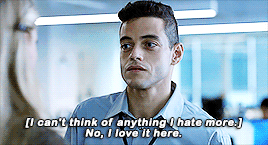
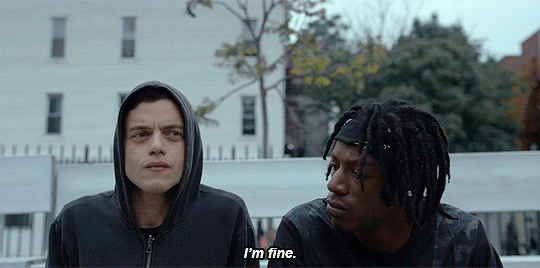

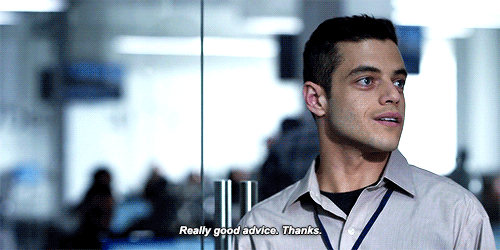
Routine & Sensory Processing
Elliot is rarely seen eating onscreen, but we have seen him eat fries on a few occasions. This leads me to believe Elliot does not have a varied diet, much like many autistic people who have a limited scope of foods they are willing to eat due to sensory issues and adherence to routines. Elliot’s trademark hoodie is also an example of both of these. He wears it constantly everywhere he goes, and he almost always keeps the hood up, likely for a sense of security. This all leads back to comfort. Elliot is comfortable in his hoodie, he is comfortable eating only certain foods, he is comfortable in his routine and in his own personal regulation of sensory input.

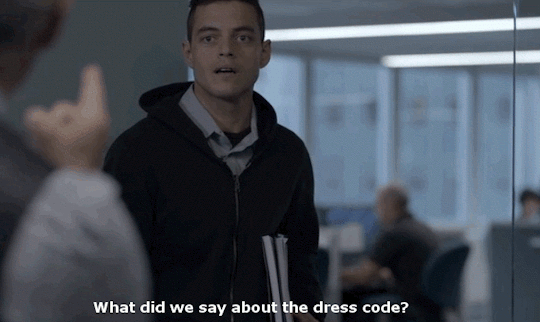
Aversion to Touch
Usually due to sensory issues or anxiety, many autistic people have issues being touched, even with those closest to them. Elliot is highly aversive to sudden touch and will flinch if it occurs. He is slightly more relaxed if he is expecting the touch and can brace for it, and rarely he seems fine with touch as long as he is the one initiating it. (His touch aversion is likely compounded due to the physical abuse he experienced as a child).
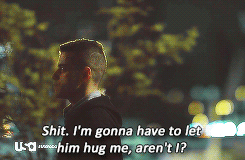

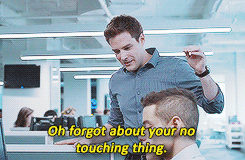

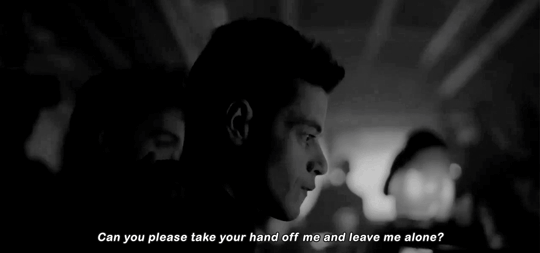
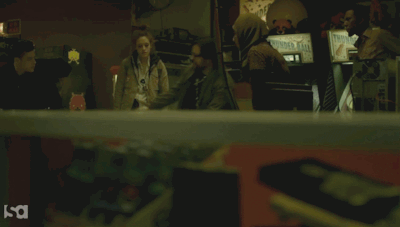
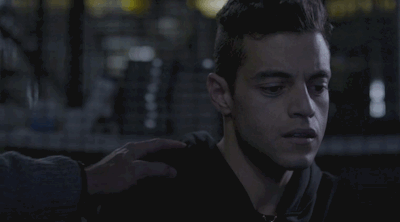
Stimming
Stimming means self-stimulatory behavior, usually through some sort of repetitive action. Autistic people stim as a form of self-regulation; it helps keep us calm in times of stress, expresses excitement, and releases nervous energy. A very common stim for Elliot is running his hands through his hair, which he most frequently does when pulling off his hood. Elliot has been observed rocking while working through a hack as well as when he finds himself alone in a motel room after withdrawal. He also exhibits echolalia (means verbal repetition of phrases). It is sometimes considered a form of stimming among autistic people and Elliot has done it on multiple occasions.
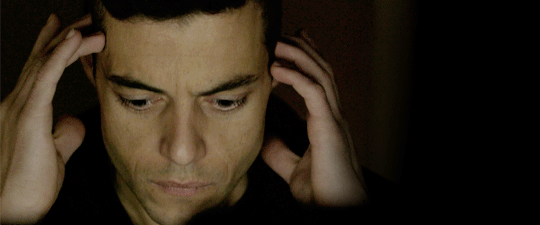
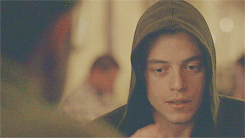
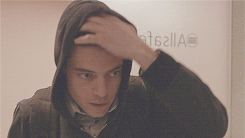
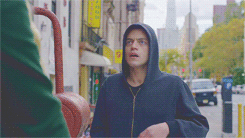
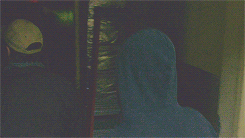
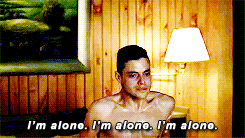
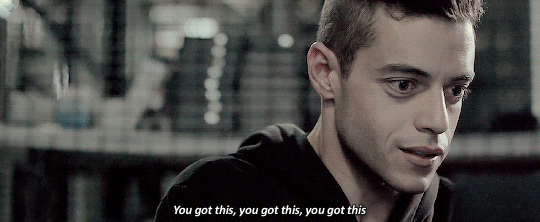
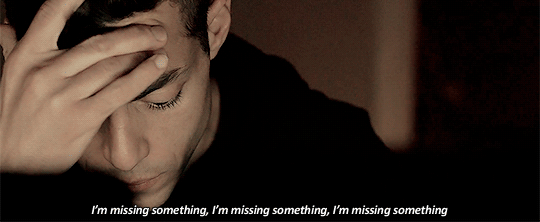
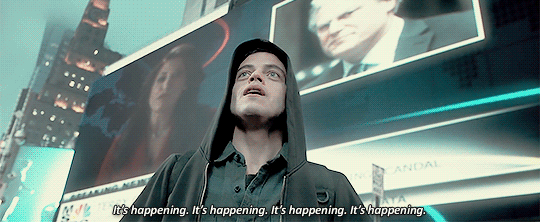
Comorbidity
Elliot canonically has anxiety, clinical depression, insomnia, morphine addiction, and a dissociative disorder (likely DID). Autism frequently coincides with other disorders and mental illnesses such as anxiety, depression, insomnia, addiction, and schizophrenia, among others.
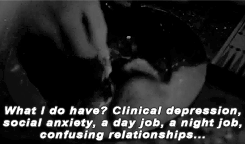
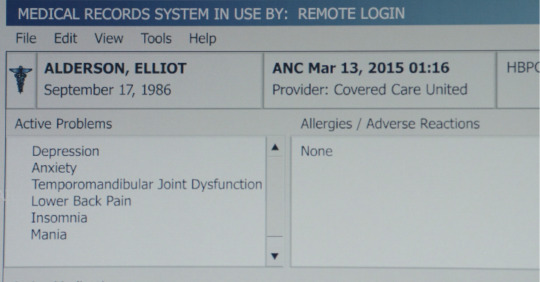
Special Interests
Elliot appears to have a special interest in coding and hacking. Elliot has been involved in it since childhood. It occupies a significant portion of his life, from his choice of employment, use of free time, and his anarchist activities. He has a highly dedicated computer set-up in his otherwise shabby apartment. This hyperfixation spanning years has led to his expertise in the field of cybersecurity.
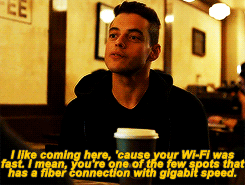
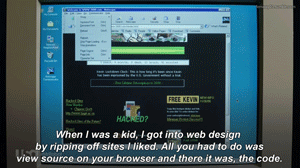
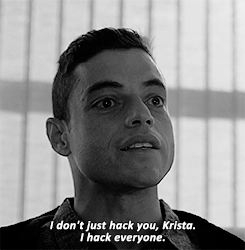
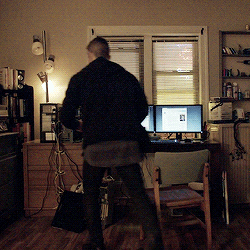
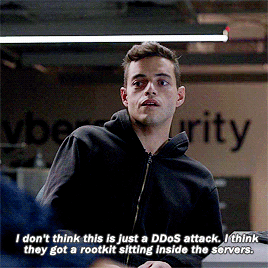
Sensory Overload, Meltdowns, Shutdowns
Sensory overload occurs when one’s brain and body get overwhelmed by what’s going on around them, and it can lead to meltdowns and shutdowns. Both are involuntary reactions, although some autistic people can sense when one is about to happen and get to a safe place to ride it out. Meltdowns can include screaming, crying, lashing out, self-harm, and destruction. Shutdowns involve freezing up, becoming non-responsive, shallow breathing, inability to speak, and a blank stare. Elliot has experienced what appears to be sensory overload several times, along with a few meltdowns and shutdowns. He can be seen sobbing and rocking, appearing stunned, highly overwhelmed and disoriented, and lashing out while losing control. In Elliot’s case these may also correspond with dissociative episodes, as sensory overload could trigger a meltdown/shutdown which then triggers dissociation, or vice versa.
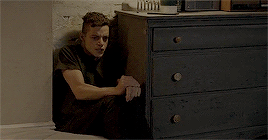
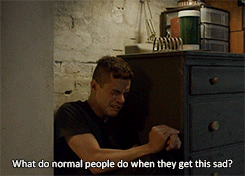
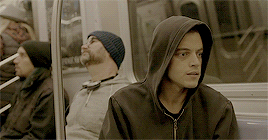
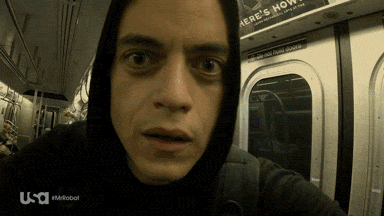
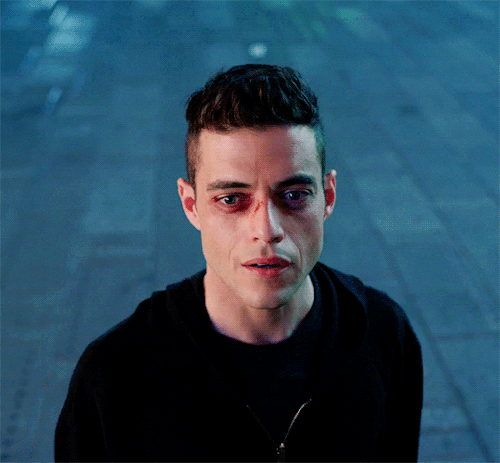

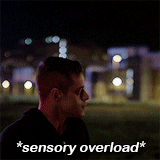

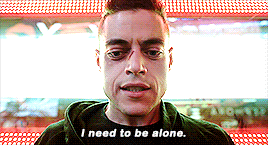
Social Confusion, Discomfort, and Isolation
Autism, first and foremost, is a social disorder. Elliot openly admits to having social anxiety and discomfort around most people. He feels like he’s on the outside looking in, a very common sentiment among autistic people. Elliot is unsure how to respond to compliments, avoids eye contact or holds it too intensely, has stunted awkward conversations, misreads social situations, avoids public events, and genuinely believes he cannot share his honest self with others because they will reject or betray him. Many autistic people self-isolate to avoid social situations and in turn express feelings of loneliness and a desire to connect but are unsure how. Elliot mentions his father was the only person he could talk to, meaning that like many autistic people, he is more relaxed and social with specific 'safe’ individuals. As both a hacker and an autistic person, Elliot finds it very difficult to trust other people.
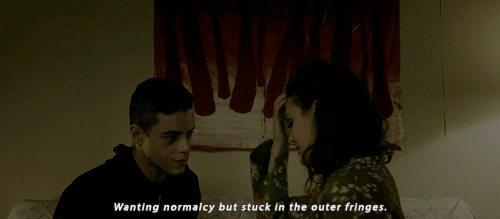
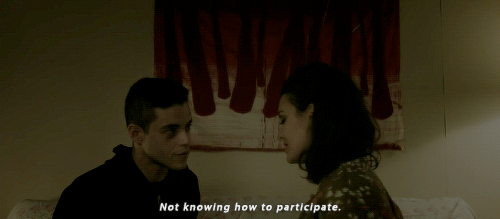
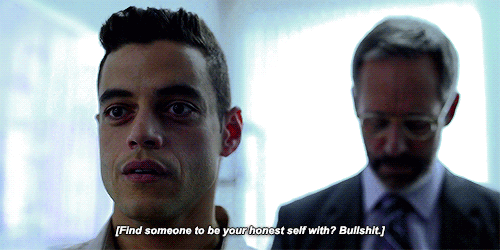
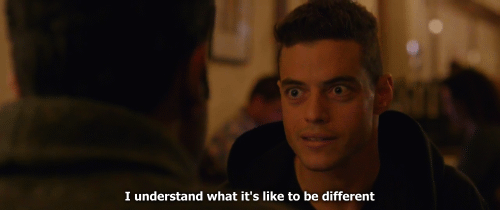
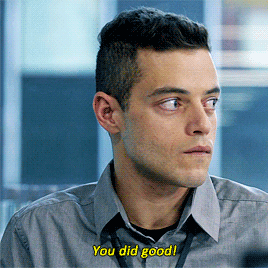
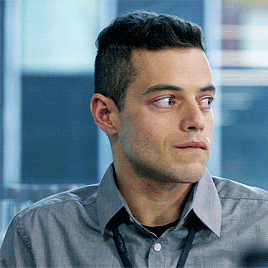

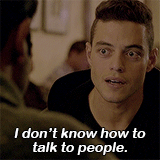

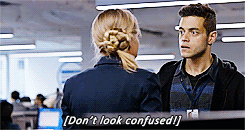
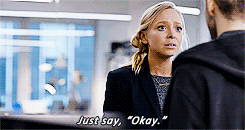
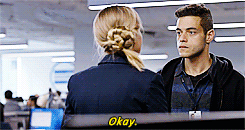
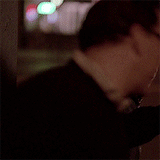
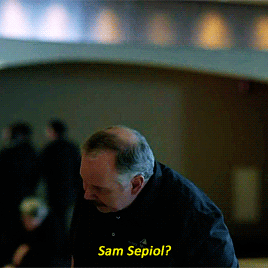
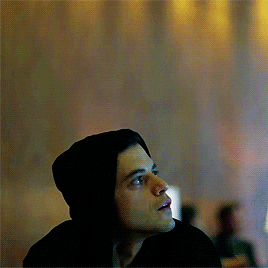
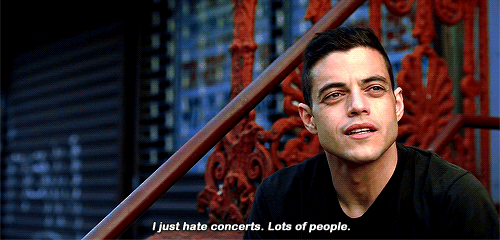
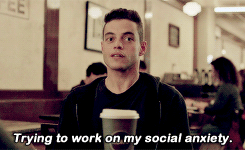
Hyper-empathy
Although the pervasive stereotype is that autistic people lack empathy, we can be at the extreme of either side or somewhere in the middle. Some autistic people experience low-empathy, while others like Elliot experience hyper-empathy (although this doesn’t mean he effectively expresses it). He professes early on that he is good at reading people. Elliot has a strong desire to protect the people he cares about, even if he does it in misguided ways. He forces a serial cheater to break up with Krista and rescues (steals) his dog to stop it being abused. He worries about Angela and wants to shield her from disappointment. He gets Shayla’s rapist arrested. He feels guilty for the things he said to Bill at Steel Mountain and desperately wants to apologize. He connects closely with the plight of his therapist on a personal level. He leaves AllSafe to try and protect Gideon. He offers Darlene a place to stay despite viewing her as a stranger. He keeps constant tabs on those close to him almost as a compulsion. And while Elliot struggles with people, he more easily connects to animals; both Qwerty and Flipper entered his life unexpectedly but he cares deeply for them, even referring to Qwerty as his “friend” at one point, rather than a pet.


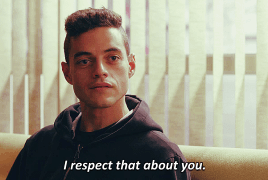

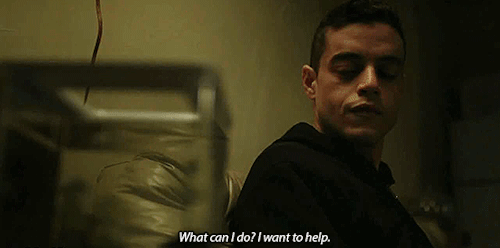

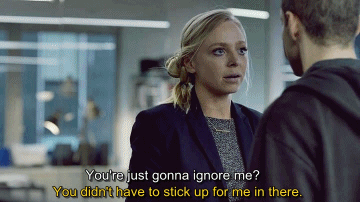
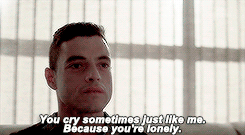
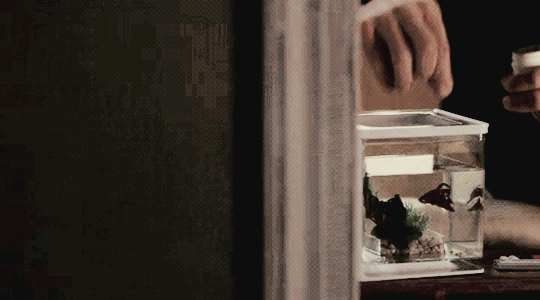
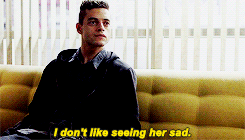
Partially Nonverbal
Sometimes when Elliot is interacting with someone he will speak only in his mind but will not verbally respond to people around him, which tends to irritate others because he just appears to be ignoring them by staying silent. His internal monologue is constant but outwardly he speaks very little. It appears that he often does not realize that he actually hasn’t said anything out loud.
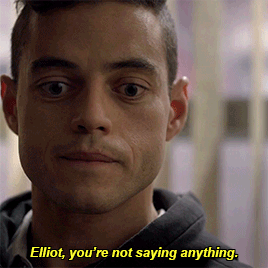
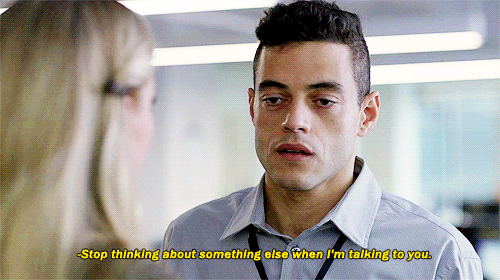
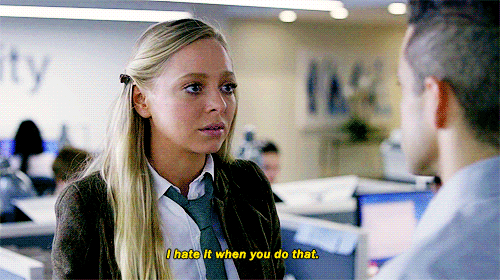
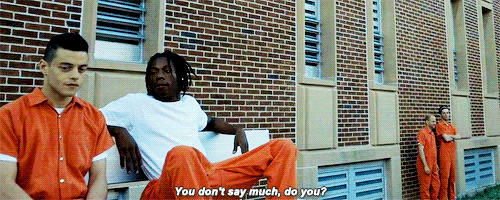
Strong Sense of Justice
Some autistic people have very firm ideals about right and wrong, it often comes with black-and-white thinking and hyper-empathy. Although Elliot is a bit morally dubious himself, he does have a strong disdain for the control money has over people, he takes down child pornographers, steals dogs from abusive owners, and mentally changes ‘E Corp’ to ‘Evil Corp’. He mentions multiple times his desire to ‘save the world’.
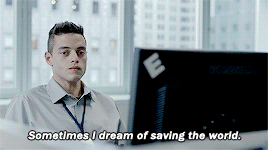
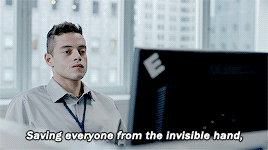
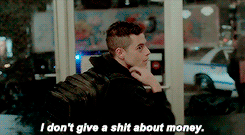
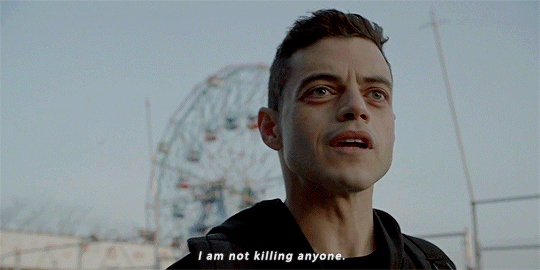
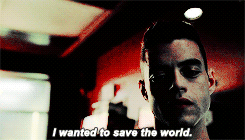
Blunt Honesty
Autistic people often share their honest feelings without social graces to soften certain harsher assertions. Elliot is not shy about letting people know when he doesn’t want their company or opinions. Elliot is simply attempting to be straightforward, but it can come off as cold even if he doesn’t always mean it that way.
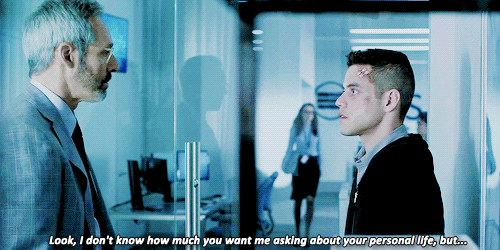
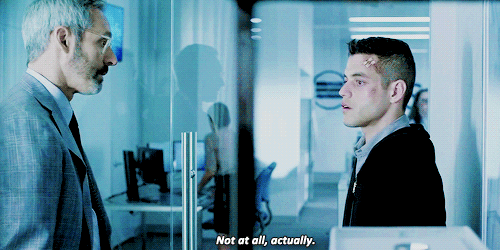
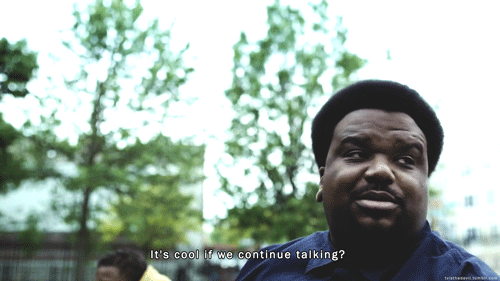
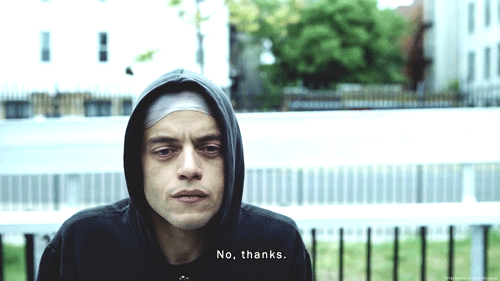
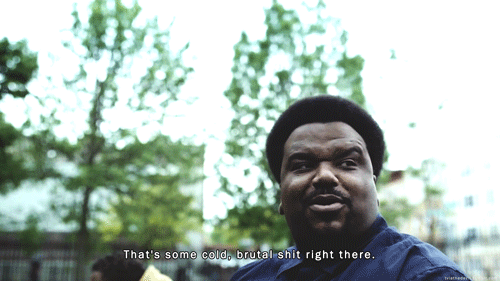
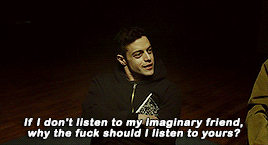
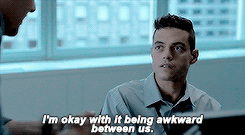
Self Talk
Not just a unique feature of the show, Elliot’s internal monologue is actually fairly common among autistic people. And while almost everybody talks to themselves sometimes, autistic people tend to do it more often than most as a means of working through tasks, dealing with emotions, planning social interactions, etc. It helps when the world is overwhelming to talk things out with yourself. Even the ‘imaginary friend’ (us, the audience) is a way for Elliot to externalize his thoughts about situations he finds himself in. Many autistics talk to ourselves out loud, which luckily Elliot avoids because if he spoke everything he thinks to himself he’d definitely be arrested by the first episode! Elliot’s likely taught himself not to speak all his thoughts out loud because he knows it would be dangerous, although occasionally he will do so without meaning to.
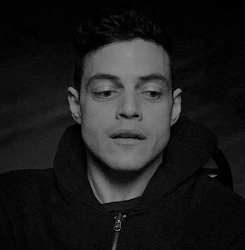
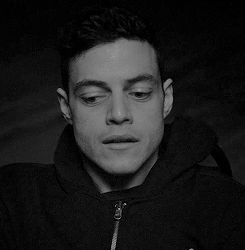
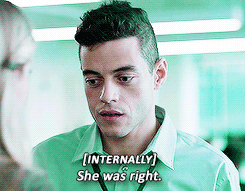

So yeah, I probably forgot a bunch of things, but this is all I could think of for now. Elliot is very near and dear to my heart, and I hope his character will continue to be treated with the respect and nuance he deserves.
(Psst, Sam Esmail! Make autistic Elliot canon please!!)

#actuallyautistic#mr robot#elliot alderson#autistic headcanon#autistic representation#rami malek#neurodiversity#long post#sam esmail#gifs#blood tw#rape tw#drug use tw#mental health#disability
369 notes
·
View notes
Text
My emo ass backstory
This was originally the script to a draw my life video, but I realized that it was becoming so ridiculously long that it could only work in text form
Nevertheless, I wanted to get this out of my system. I don’t think I’ve ever truly told anyone about my past in more detail than “I was bullied”, and just getting in depth about it for the first time in my life felt. Good.
CW for bullying, abuse and animal death
I was born in 1998, in a city called Helsingborg in southern Sweden, actually only a few miles away from Denmark by boat. My father worked as a cashier at the time, and my mother was unemployed. She used to breed dogs, but had to give it up when my big brother, Jakob, was born in 1997 in order to be able to raise him, and later me and my siblings. We still had some dogs around though, including one named Bandit who I adored.
During my early years, my family was struggling financially, because the only one out of my parents who had a job (my dad) had a pretty poorly paying one, and not only did my parents have me, my big brother and dogs to care about, I also had a little brother, Filip, and a little sister, Klowbi. We very rarely got things like toys or games, since my parents couldn’t afford them, so Jakob and I early showed interest in the internet as a nice way to spend our free time. The internet was a much more empty place back then, but we still found a lot of fun things to do, moreso than with the few toys we had.
When I was maybe five years old, my parents got more well paid jobs, my mother as a politician and my father in the advertisement industry, and my family’s economical situation became a lot better.
I began 1st grade in 2005, and oh jeez… I was bullied for nine entire years, and most of it stems from the fact that I was an undiagnosed autistic. Worth noting is that I was dfab, and presented as a ”girl” at that time, but it’s not like nobody noticed my symptoms just because of that. A lot of people noticed actually, but my mom did not believe them when people expressed concern.
I changed schools a lot, but I always ended up bullied, and my teachers would never support me, instead saying it was my fault for various reasons. A lot of the bullying was about harrassing me to the point that I would get meltdowns, because my classmates thought that was hilarious. I was a circus animal, in every sense of the word. Other fun stuff that happened to me in school was being asked out as a joke, being assaulted in gym class and being threatened with assault and bloody murder.
One particular story I remember takes place when I was in 7th grade. One of the popular girls asked me if I were a lesbian, and me, not knowing when to keep my mouth shut, said that I was not sure of my sexuality, and that there was a possibility I was not het. It quickly became the hottest meme that ever hit the school, and I was very heavily sexually harrassed over my statement. After four days of no peace, I decided I’ve had enough and attacked the girl. I ended up cracking her phone’s screen, and she promptly threw a fit and started playing the victim. Of course, she played the entire school, teachers included, like a piano, and I was demonized yet again.
At the time, I trusted my mother a lot, so you might wonder how she reacted to the whole thing… not ideally. She completely ignored that I was being subjected to homophobic harrassment, and instead just talked to her friends about how brave I was for being too autistic to know how to avoid giving my abusers ammunition. And yes, she chewed me out for cracking that phone screen. That was when I first realized my mother might not be as fantastic as everyone in my life had told me, and it would only get worse from that point on.
So how did I cope with being so heavily bullied? Not very well, mind you, but I still somehow survived. And I, knowing how pathetic this sounds, owe my life to the internet and my pets. I had a lot of wonderful animal friends. Those I loved the most include a Cocker Spaniel named Tim, a really fat mackerel tabby cat named Pikachu, a white cat with yellow/blue heterochromia named Kitty, and a gray tux cat named Pyret, who is still alive, actually! There was a time where Kitty was my absolute best friend. Kitty was a really antisocial and hissy cat, so it was all the more heartwarming that when no one really cared for me, at least I had a friend in a grouchy hissy cat who hated everyone else but me.
Unfortunately, that meant that Kitty despised other cats too, which became a problem when my family was forced to take in a new kitten back in 2012, the aforementioned Pyret. Kitty attacked Pyret whenever given the chance, and Pyret’s presence put Kitty in such a bad mood that she ended up attacking my at the time 9 year old sister. That was the point where my parents realized that the situation was going out of hand, so we took Kitty to the vet, and she was diagnosed with gastric cancer. The vet speculated that Kitty became unusually aggressive because she couldn’t handle her pain. There was nothing the vets could do, so Kitty had to be put to sleep.
Tim the Cocker Spaniel also suffered a similar fate: I was his very best friend, but one day, he got a disorder that affected the nerves in his eye area. That meant that slowly, his eyesight became much worse, and eventually, he recognized everyone as a threat, and reacted accordingly: aggressively. I was the only one who he could still recognize as a friend. Because of this, as well as the fact that he was clearly suffering, he had to be put to sleep as well.
Both of their deaths caused me great grief, but I’m still glad that I got to know these wonderful pets who helped me during the worst time of my life.
When it comes to coping using the internet, some of my fondest memories come from the website KPWebben, a website for a Swedish magazine directed at kids in the ages 8-15. From 2007 to 2012, the website had a community with a forum. I created a name around myself on said forum. I was spunky, snappy and not afraid to call the BS when I saw it. I was frequently questoning the authority in the moderators at the site, and I loved to make people think and question the reality around them. In many ways, on KPWebben I was allowed to be myself without facing consequences (from peers, mind you: the moderators loathed me). To some extent, I may have taken it too far, because I would often end up doing questionable things and create discourse around myself. I didn’t mind that much, though: I would much rather be known as the really cool and well spoken person that was a little too confident at times than as the human waste of space most people in meatspace saw me as.
This attitude actually gave me a lot of friends, including the person who is now my best friend and favorite person. I may have mellowed down a bit since my KPWebben days, but I still adore her.
Eventually, I graduated 9th grade and began secondary school, and somehow, I was bullied no more. But gradually, another problem surfaced in my life. My mother. Long story short, she was abusive to me. She isolated me from my friends, insulted me, and she expected me to have all the responsibility of an adult but none of the benefits. She was neglectful, as mentioned before, she wouldn’t listen to people who suspected I was autistic, and she never really cared about how I was suffering from being bullied. At times, she would even blame me for being bullied, much like my teachers would do. During this time, I realized that I was non-binary, and I had come out to my family, but my mother aggressively refused (and still refuses) to use my preferred pronouns, saying that ”it’s so hard :(” whenever I corrected her, and would scold me for correcting other people about my pronouns, because apparently me wanting to be referred to using my correct pronouns was embarrassing and annoying.
My mother also showed heavy favoritism towards Jakob and constantly compared me to him. Now, it is true that there’s only a 15 month age gap between him and I, so we are twins in everything but name. But Jakob is not me. Jakob is neurotypical and has not suffered the trauma I have. Jakob is an aspiring musician and while he hasn’t technically made a hit, he is talented and he probably will make it big. Being constantly compared to a person like that really hurts, especially when the people making these comparisions know you can’t become anywhere as good, and that they are just making these comparisions to make you feel bad about yourself.
While the bullying from my classmates was technically worse, what made my relationship with my mother so bad was the sense of betrayal. When I was younger, I thought that my mom was a real life super hero. She worked in politics and all of her motivations stemmed from her wish to make children’s lives better. She had made an extremely good name around herself, and she is a really likable person on the surface. So I didn’t know what I did wrong when she suddenly turned on me and all her talk about wanting to improve children’s lives went out the window. And her good reputation acted as a safety net as well, because no one believed me when I told them about what was going on beneath her facade.
My father was just not there. He was physically there, but he lacked a spine. He constantly enabled my mother’s disgusting actions, and always told me that she cared and that she doesn’t know how to raise me. Because a person with the kind of positive reputation my mother has cannot possibly raise an autistic child, right?
A lot of things happened to me in 2015. I was run over by a bus, for starters. I was on my way home from school, on my bike, when a bus appeared and ran over my left foot. The bus driver was breaking several traffic related laws, but they never faced any consequences despite me pressing the police to do so. The accident led to some minor fractures in the bones in my foot, but I was really lucky in that accident. It could have been so much worse. I’m still here, and able to walk, and that’s nothing short of a miracle.
I was also finally diagnosed with autism later that year, and I was enrolled on a boarding school for autistic people. This was a massive turning point in my life, because it let me move out at the age of 17 and escape the clutches of my mother. It’s far away enough from Helsingborg that my family can’t just visit me randomly, and I have my very own apartment. I still visit my family every other weekend and on breaks and such. I do miss my cat a lot while I’m here, but it’s a small price to pay for the peace and quiet and a place where no one really abuses me anymore.
There are however two downsides to this: I had be held back a year because my autism was making my studies suffer in 10th grade, before I moved to the boarding school, and I effectively won’t graduate until 2019. And Klowbi, my little sister, seems to be affected negatively by this change. We were pretty close to begin with, and me moving so far away when she was only 12 meant that she lost an otherwise ever-present friend. On top of that, she appears to be neurodivergent, but as I’m writing this, she has no access to therapy. And if that wasn’t bad enough, my mother appears to have moved on to abusing Klowbi instead of me. I don’t know too many details, since I don’t spend a lot of time with my family (and my mother seems to act as nice as she can in that slimy abusive way whenever I’m visiting). I try my very best to help my sister, because in my age, I did not have anyone who cared about me or my situation (that wasn’t an animal that couldn’t do a lot to help me), and I don’t want Klowbi to experience what I did.
5 notes
·
View notes
Note
How was it like growing up as an autistic child? When were you diagnosed? C:
I was diagnosed later in life (mid-twenties) after seeking out the diagnosis on my own. I never really knew I was autistic as a child or as I was growing up, I just knew there was something “different” about me. It was hard to put two and two together for a number of reasons…
(adding a read more cut because this ended up being a long answer, sorry!)
I was home schooled by my mom with only my brother and sister as company until I reached the 7th grade. The only real social interaction I had was with a few family friends (most of whom trickled out of our life after a couple of yrs of knowing them, for various reasons) and kids I got to know at church. I went to church every Sunday and Wednesday until I was in jr high and had a few friendships that lasted a few yrs, but all of them ended over time (kind of badly in some cases, some of them bullied me in the end). I hung out with my cousin for several yrs until she also became too “cool” for me. Needless to say, everyone just thought I was weird because I was home schooled, isolated, and friendless through most of my little kid yrs.
Despite having a somewhat isolated childhood I was really happy I think. I didn’t really get why people didn’t want to be my friend back then. I was a pretty happy kid. I didn’t think it was all that weird to be as hyper-focused on small details of things as I was, to notice the things I did, or to have the special interests I had. Also I was really really shy and didn’t talk very much at all. I had fewer sensory issues back then because I was more in control of my environment (spent almost every minute at home!) but they tended to get worse on long trips in the car or in situations where I couldn’t get away.
I grew up in a very small town in Texas. There was no practical or helpful interventions in place for kids who didn’t “look” like they had a disability, but still did have one. None of my issues ever got singled out on an institutional level (like recognizing a learning disability or whatever, my issues were mostly intrapersonal and interpersonal, everyone thought my educational issues were bc of home school). My parents thought I had a behavioral attitude problem and threatened to send me to boot camp a lot (my dad is ex marine). I got in trouble at home a lot because I was argumentative. The one time i spoke up about having anxiety and depression I got a couple of months worth of Lexapo from my GP, and never got it refilled. I was a freshman in high school at the time I think. Mental health wasn’t talked about or taken seriously where I grew up. If you had real problems you were supposed to work them out in church (no offense to ppl who believe in that, but I don’t think it should take the place of practical interventions that can help improve ppl’s lives). I mostly just started “working them out” through self injury (bad coping mechanism), and later through art.
From jr high to high school I kind of found my niche. I had groups of friends eventually, really good friends. Mostly outcast types, but we didn’t care, we were the weirdos and we liked that. I also took on the role as the artsy eccentric one in the group who said weird stuff that people thought was funny or amusing. I actually really liked this part of me, but the other issues in my life at the time made this a less happy point in my life. It was a mixed bag.At this point (basically from 7th grade on) I was dealing with a lot of depression, anxiety, self injury, etc. I started looking into psychology as a way to describe what I was going through, why I had such intense emotions, meltdowns, sensory issues, depression, headaches, stress, etc. That time period was the birth of my lifelong interest in psychology. I bought every book I could, watched every movie. There was a lot of confusing info out there (movies probably didn’t help since they don’t portray mental illness very accurately usually, lol). But autism was never really brought to my attention because of the obvious reasons (stereotypically a young boy’s disorder, mute stereotype), but also because of the divide between the medical field and the psychological field. I was looking in the wrong places, apparently. I think this divide is a major issue that will eventually need to be addressed, by the way.
To answer your actual question… Growing up undiagnosed autistic was confusing as all hell. Often sad. Very very lonely. I didn’t really get what I was doing “wrong” most of the time? For a large portion of my life I had a lot of magical thinking. I thought I was “special” and could like, control certain things in my life (kind of like in a serendipitous way? idk it’s hard to describe). I used to think I had schizotypal pd but that might have just been a result of trying to make a confusing life make sense. Maybe I do though who knows really.
I might have had these issues with or without a diagnosis, but I definitely have always felt “broken” bc I didn’t have an explanation for why I was different.I have a lot of self-loathing, lack of confidence issues that I’m still working through as an adult. To be honest with you (and I don’t consider this tmi because this is my blog lol)… I was really at my wit’s end when I decided to seek out a diagnosis. I felt broken, like a burden, like garbage parts that would never do any good in the world or mean anything to anyone. I had a lot of suicidal thoughts all the time, I was in a really dark place for many years and the only thing keeping me going was my husband (then boyfriend) and my pets. When it got bad enough that I was scared for my safety I decided I needed to demand help from myself and my family and friends.
Things completely changed when I got my diagnosis. Something in me shifted, and I felt I understood the universe more clearly. Kind of like when you learn something new in school or whatever and everything takes on new meaning somehow. It was like that. Since then, I’ve had a lot more self acceptance. I still have a lot of issues sometimes when I’m having a really bad meltdown or depression (okay it happens way more than it should, I really need to go to therapy I know, lol), but things have improved so drastically by knowing I’m autistic, I can’t even tell you. It’s also improved my relationship with my husband, (side bonus).
It hasn’t been all good, I mean, my family and irl friends have barely acknowledged it which just makes me doubt myself all over again… But then I remember “oh yeah other people don’t have to deal with this kind of shit!!!! This isn’t typical!!! This isn’t the “normal” everyone else is experiencing!! Fuck you I’m autistic or whatever else you wanna call it, come at me!!!! I’m done feeling like I’m broken so just accept it already and start to know me as me and not as this bullshit image you’ve created in your mind to represent me!!” :D
Besides, acceptance or not, I’m always going to have the issues I have. I’ll always have a hard time understanding what people are saying when there’s too much going on, I’ll always get overwhelmed and burned out, I’ll always have meltdowns (something that is very hard to accept about myself), I’ll always make social blunders and misunderstand people, I’ll always be misunderstood, I’ll always struggle with things that come more easily for others. But I’ll also always see the world from a totally different perspective from everyone else, which I think really helps me in my art and ideas. And I have a lot of fun in life when things are going well, I’m really super passionate about so much and I think that’s because of my strong emotions and connectiveness to things. I have a fun childlike view of everything when I’m in a healthy place and I love that about myself. There’s a lot of really cool things about it, and some bad things too.
Sorry this is such a long answer. I’m clearly avoiding my school work…………. It’s been a long stressful weekend and venting a little felt good so thank you for this question that I have taken way far off track, heh heh.
I should probably be more “professional” in my answers to these types of questions since this is the field I want to specialize in eventually, but whatever. This is real life and real life is messy and sometimes you get mad about your baggage and curse a little. It helps to curse a little. ;)
Also I’m an oversharer, sorry! Autism is a big interest of mine and so is human behavior. So it’s hard to hold back…
#Anonymous#actuallyautistic#actually autistic#autistic#autism#mental health#aspie#autie#aspergers#asperger's syndrome#asd#reply#replies#answer#question#response#ask#personal#trigger warning#tw#suicide tw#self injury tw#depression tw#cursing tw#negative
2 notes
·
View notes
Text
Quarantined Cruise Passengers Have Many Questions. Japan Has Few Answers.
TOKYO — The 3,600 people aboard the Diamond Princess, locked down for more than a week and desperate for information, have been reduced to peering out windows as hazmat-suited workers take away the newest coronavirus patients and mysterious buses, their interiors shrouded by curtains, come and go from the port.
They have Wi-Fi, but it is spotty, and even if it were not, they might search in vain for information about their plight from tight-lipped Japanese authorities.
Experts in crisis management said the government was offering a textbook example of how not to handle a public health crisis.
“Repeatedly explain what is known, and what is unknown, and when people can get more information about what remains unknown,” said Dr. Hana Hayashi, a public health strategist at McCann Healthcare Worldwide Japan. “It sounds very simple, but by continuing to do this, people’s concerns will be reduced.”
With 135 of their number known to be infected — the most cases anywhere outside China — one of the biggest questions for those stuck on the Diamond Princess off Yokohama is: Why won’t Japan test everyone on board for the virus?
As of Tuesday, only 439 had been tested, and the Japanese authorities have sent mixed messages.
For days, officials have said the country simply does not have the ability to test everyone on the ship. But on Tuesday, as demands grew, Dr. Masami Sakoi, an assistant health minister, said at a news briefing that the health ministry was considering expanding its testing capacity.
Japan’s insistence that it is an issue of practicality has been met with some skepticism.
Critics of the government’s handling of the outbreak say that officials simply are not explaining enough of their thinking as they face an epidemiological challenge with no easy playbook. The government’s communications strategy has undermined trust, and speculation has sometimes filled the void, including about whether there could be alternatives to keeping so many people locked inside a contaminated vessel.
“Here you have people locked down on a pseudo prison on a cruise ship,” said Kyle Cleveland, a professor of sociology at the Tokyo campus of Temple University who has studied Japan’s response to another crisis, the Fukushima nuclear meltdowns. “Is it really a matter of not having enough tests?”
In China, after all, where more than 42,000 people have been infected and deaths have surpassed 1,000, health officials are performing thousands of coronavirus tests a day. Unlike Japan, China has been confronting the outbreak since December, and has had time to produce test kits. Even so, it is contending with a shortage.
Updated Feb. 10, 2020
What is a Coronavirus?
It is a novel virus named for the crown-like spikes that protrude from its surface. The coronavirus can infect both animals and people, and can cause a range of respiratory illnesses from the common cold to more dangerous conditions like Severe Acute Respiratory Syndrome, or SARS.
How contagious is the virus?
According to preliminary research, it seems moderately infectious, similar to SARS, and is possibly transmitted through the air. Scientists have estimated that each infected person could spread it to somewhere between 1.5 and 3.5 people without effective containment measures.
How worried should I be?
While the virus is a serious public health concern, the risk to most people outside China remains very low, and seasonal flu is a more immediate threat.
Who is working to contain the virus?
World Health Organization officials have praised China’s aggressive response to the virus by closing transportation, schools and markets. This week, a team of experts from the W.H.O. arrived in Beijing to offer assistance.
What if I’m traveling?
The United States and Australia are temporarily denying entry to noncitizens who recently traveled to China and several airlines have canceled flights.
How do I keep myself and others safe?
Washing your hands frequently is the most important thing you can do, along with staying at home when you’re sick.
Some passengers say that if it were just a matter of logistics, Japan could look for outside help.
“I’d prefer if our countries pitch in and help test everyone,” said Vera Koslova-Fu, an Australian on the ship.
Still, there is far from universal agreement that Japan should test everyone on board the Diamond Princess, even if it could.
Olivia Lawe-Davies, a spokeswoman for the World Health Organization, said that its experts agreed with the way Japan was handling the quarantine.
“No country or entity has had to manage this novel coronavirus, for which there are still many unknowns, on an international conveyance with this many people,” she said. “The most important thing is to ensure that people who are ill receive proper treatment, which the Japanese authorities are doing.”
Some infectious disease experts questioned whether testing everyone on board would in fact be effective.
“In reality, people are in the incubation period right now,” said Mitsuyoshi Urashima, a professor of molecular epidemiology at Jikei University Hospital in Tokyo. “The tests are not absolutely always right.”
(Proof of that came from a different set of coronavirus patients on Tuesday. The health ministry announced that two Japanese citizens who had previously tested negative after leaving Wuhan, China, where the epidemic began, were now infected.)
The tests themselves pose their own obstacles.
They are not simple throat swabs, but instead require mucus from hard-to-reach parts of the respiratory tract.
The simplest test, a nasopharyngeal swab, “is not surgery, but it comes close,” said Dr. William Schaffner, a professor of preventive medicine and infectious diseases at Vanderbilt University Medical Center in Nashville. “It’s an aggressive medical procedure.”
The alternative requires pumping saline mist deep into the lungs.
“You could not do it on healthy people by the thousands, or just go from cabin to cabin doing it,” Dr. Schaffner said.
Both procedures are risky for the medical personnel doing them, because they can send the patient into a retching or coughing fit, spewing out virus.
And even then, he said, concerns would remain.
“I’m sure a lot of people on board think, ‘If I’m negative, I’m cleared,’” Dr. Schaffner said. “It’s not that — you could be positive tomorrow.”
Even if the tests are not scientifically warranted, some public health experts said, they might help calm anxious people on the ship.
“If it puts people’s minds at ease, it has merit,” said Eiji Kusumi, a doctor specializing in infectious diseases at Navitas Clinic in Tokyo. “We’re dealing with people who are operating out of emotion.”
One passenger, Sarah Arana, a 52-year-old medical social worker from Paso Robles, Calif., said, “I think it would provide peace of mind.”
Peace of mind has been hard to come by for many passengers, in no small part because of the Japanese government’s limited communications.
Passengers isolated in their cabins have been checking their phones for news updates and social media posts, while their families back home are frantically pressing for information.
By failing to hold regular and timely news briefings and doling out cryptic information, the government “has made the problem seem much larger than it looks,” said Hiromi Murakami, an expert on health policy at the National Graduate Institute for Policy Studies in Tokyo.
“It’s mostly bureaucrats who have to deal with a lot of things, and they don’t know how to respond sometimes,” Ms. Murakami said. “They’re not used to dealing with questions. They don’t know how to answer them, and they think if they can’t answer them, what’s the purpose of having a press conference. So they avoid these situations.”
That may soon prove harder to do. Experts say the Diamond Princess may be only the beginning of Japan’s challenges with the coronavirus.
“Probably it’s a tiny portion of our problem in Japan,” said Hitoshi Oshitani, a professor of virology at Tohoku University. “If we have a few hundred cases in Japan and there are probably thousands of contacts around these few hundred, the numbers will increase every day.”
But for now, the government is saying little. On Sunday and Monday, it waited hours to confirm that there were new infections on board, even as the captain of the Diamond Princess announced them to the ship.
Rumors abound.
Early Tuesday, Japanese news outlets reported that the health authorities were considering taking some elderly passengers off the ship, but officials refused to comment. Passengers on the ship could see that at least two buses, their windows covered in curtains, had pulled up to the port, and claims spread that some people were being allowed to leave.
In the absence of official communication, some have found their own way to communicate: Japanese passengers, who make up about half of the 2,666 guests on board, unfurled cloth signs off their balconies.
“Serious lack of medicine, lack of information,” read one.
Reporting was contributed by Makiko Inoue, Hisako Ueno and Eimi Yamamitsu from Tokyo, and Donald G. McNeil Jr. from New York.
from WordPress https://mastcomm.com/quarantined-cruise-passengers-have-many-questions-japan-has-few-answers/
0 notes
Link
The idea that a book is brought to life by its reader is not new. A writer pours all of the details and plot that they can into a work and then the reader comes along and makes it their own by keying into the things that matter to them and ignoring the things that don’t. This conversation and co-creation between writer and reader feels like magic when we allow ourselves to surrender to it. Yesterday, though, Ruth Ozeki took me beyond that magic to make me feel as though A Tale for the Time Being was not only written for me, but was being written for me as I read it. I wanted to go back and re-read it immediately to see if it changed. I also wanted to have you read it immediately to see if it was a completely different book for you. It probably isn’t (not really) but it’s very much worth a read either way. I’m going to delve into where the magic came from for me. Just go buy the book if you want to avoid my spoilers.
Metafiction Toys with Reality
A Tale for the Time Being is two books in one. The first is the diary of a teenage girl living in Tokyo in the nearish past. The second is the story of a writer, Ruth, living on an island on the west coast of Canada actively avoiding writing her next book, a memoir about her mother’s death from Alzheimer’s. Now if you look up metafiction, you’ll see that the form of authorial insertion is often used as parody. Yes, if you’re talking about Kundera. It’s also used as a tool to “explore the relationship between literature and reality, life, and art.” This is more what you see with writers like Paul Auster and it often feels like a stilted lecture. Weird, but stilted.
Ozeki, on the other hand, brings a rich humanity to metafiction that allowed me to bring my whole being to the book and not just my intellect. I’ve loved two other books by Ozeki before and I can’t recall her ever using herself as a character before, but she did it brilliantly here and it was just the right effect for this book. Part of the reason it worked so well is that she engaged my emotions first. Granted, it was the emotion of annoyance as I met an angsty Japanese teenager, Nao, who I though was being glib about metaphors as she called herself a “time being.” I pushed past that (thank God) and kept reading. Ruth’s story drew me in more easily because it is, at this point in my life, easier to engage emotionally with a writer who should be writing her masterworks but isn’t always. Ruth finds Nao’s diary and some other papers washed up on a beach in Canada and begins reading.
Through the relationship of these two stories, A Tale for the Time Being effortlessly whisked me through major events like the Fukushima meltdown, 9/11, suicide, and what it was like to be a kamikaze pilot in World War II, hitting each from a deeply human angle. Because Nao is a Japanese girl who was living in America but then moved back to Japan we also get a Japanese perspective on these events and more which was incredibly interesting and humanizing. There’s also lots of Buddhism. In gentle, washing waves that stretched my thinking and made me feel at home. The metaphor that had initially seemed pat expanded gloriously and this book wrapped around me and made me think deeply.
How This Book Wrote Itself for Me
At first it was easy to gloss over the details that were personal to me. Nao’s great-grandmother, Jiko, is 104, wise and dying. This year I lost my Djiedo at 104. Like Ruth, I’m a writer living in the Pacific Northwest (and most days I’d rather be on an island). She’s married to an artist (as am I). They’re both trying to find their place in the world—worried about being too isolated, too in the mix of things, not making enough work or the right work. Ruth had some complicated health stuff with her mom, something I’m navigating this past month (and for the last 30 years). Nao is a complicated, unhappy teen-aged girl (as I once was). And Jiku, a pacifist Buddhist nun, has to navigate her son going off to become a kamikaze pilot in World War II while I’ve worried about sending my son to war ever since I first heard myself sing “Taps” after “Where Have All the Flowers Gone” in a night of misguided lullabies (that I couldn’t seem to stop repeating for as many years as he still let me sing to him).
This is the spoiler part. There is a moment when Ruth opens Nao’s diary and finds that what was once written is now blank. That was the switch that flipped for my tired, busy brain and made me think that maybe it was no coincidence that I picked up this book, the copy of A Tale for the Time Being that I was holding, this week, a terribly busy week near the end of a terribly busy eight months in which I find myself writing book reviews at 5am and all that Buddhist balance I’ve been craving isn’t something I’ve even been able to look for. As Nao sat with Jiko practicing zazen meditation, I felt myself breathe. And it was everything.
I don’t know that this book will write itself for you the way that it did for me, but I hope you do have that experience of magic someday. Either way, Ozeki’s writing is fantastic, always.
Pick up a copy of A Tale for the Time Being from Powell’s Books. Your purchase keeps indie booksellers in business and I receive a commission.
The post Ruth Ozeki’s A Tale for the Time Being: The Book that Wrote Itself for Me appeared first on A Geography of Reading.
0 notes
Text
New Post has been published on Atticusblog
New Post has been published on https://atticusblog.com/prisoner-of-north-korea-an-american-safe-at-home-shares-his-ordeal/
Prisoner of North Korea: An American safe at home shares his ordeal
Jeffrey Fowle misplaced his job feared for his life and puzzled if he could ever see his circle of relatives at the same time as being held prisoner with the aid of North Korea, yet the Ohio man considers himself lucky.
A religious Christian and father of 3, Fowle, fifty-eight, traveled to the secretive dictatorship in 2014, driven with the aid of an extended-abiding curiosity approximately the Hermit Kingdom and a choice to spread the Gospel to its humans. In Might also, within the northern port city of Chongjinin, he made a mistake that fee him his freedom: He left a Bible under a trash can inside the guys’ room at a nightclub. In a country wherein traffic are underneath steady watch, he becomes arrested straight away.
News that but another American have been taken prisoner through the authoritarian dictatorship of Kim Jong Un fast made its manner returned to the U.S., and the small, southern Ohio town of Moraine, where Fowle had worked for 26 years within the streets department.prisoner movie 2015
Few Individuals have traveled to North Korea
The Country department “strongly urges U.S. citizens to keep away from all travel to North Korea/the Democratic human beings’ Republic of Korea (DPRK) due to the extreme hazard of arrest and long-term detention beneath North Korea’s device of regulation enforcement.”
The U.S. Has no diplomatic relations with North Korea. Foreigners who’ve been detained or imprisoned inside the Hermit Nation frequently have a shared enjoy: confusion, coached confessions, communication blackouts, and isolation.
4 U.S. residents are currently acknowledged to be held in North Korea: 21-year-vintage university student Otto Warmbier, accounting professor Kim Sang Duk, businessman Kim Dong Chul and Kim Hak-Song, who labored at Pyongyang University.
Fowle is aware why many might query his decision to journey to North Korea
He told Fox Information that, having grown up within the Bloodless Conflict generation, he turned into excited about communism. He has visited the previous Soviet Union, the birthplace of his wife Tanya, six instances.
Fowle hoped the Bible he smuggled into North Korea, which contained his call and family images, would locate its manner to someone within the underground Christian network. But an afternoon after he hid it, his excursion institution’s leader faced him. The ebook was found and became in almost at once, and Fowle said he knew he has been stuck. He became allowed to maintain the tour, However, while he arrived at the airport in Pyongyang to go away, government grabbed him.
Holiday Maker, Time Waster And Prisoner – Three Types Of Participant
They are saying there are 3 varieties of player on an education direction, Prisoner, excursion makers and time wasters. Prisoners and being held in opposition to their will and have been made to move by a person else, generally their supervisor who desires to look like they may be doing something to help. Unluckily, they can be quite outward with their displeasure! A remark to outline these men by means of are “Do I must be right here?” Consider not to take it personally!
Then you definitely have the time wasters, they’re inside the training to avoid paintings mainly or have a talk and a laugh with their pals perhaps they may be upset with their role or something, however, the truth of it’s far that they’re no longer there to examine. One manner to pick out this behavior is through gazing apathy to the situation, fooling about, no longer listening and many others.prisoner movie 2015
In the end, we’ve got the holiday makers. those are folks that need to be there and are prepared to make the first-class of it.
Now simply earlier than we lavish all of our attention on the vacation maker, who truly do want to analyze! What approximately the opposite classes? How will we interact them?
Well, first of all, you need to find out who is what in this particular course. Understand that individuals that make up the prisoners and the time wasters will best act this way in positive environments that they locate irrelevant to them, they don’t act this way all of the time, so be difficult on the behavior and soft on the character.iran navy prisoners
I’m no longer going to suggest any sensitive feely approaches look for alerts either. I am sincerely going to suggest that you ask them outright!
I used this myself quite currently to outstanding effect. It’s a sincerely wonderful manner to interrupt the ice and begin the day and its one-of-a-kind from the same old “What does everyone need to get out of today…” “a nice lunch!” You realize what I mean!
Living the American Dream Through Network Marketing
Is the yank dream useless? Perhaps it is simply dormant or perhaps it released an updated version of itself. perhaps it, simply perhaps it’s no longer unique or dormant, however, has taken a brand new path for plenty people. perhaps the Yankee dream from 50 years in the past, is probably the same as these days. To very own a domestic, to be financial cozy, to have an emergency fund simply in case of a meltdown in the place of business. Could it simply have more freedom as well for some humans? What’s your American dream? One way to at ease your dreams is to have a livable and sustainable source of profits. Even though it is operating inside the outdoor global or maybe with the resource of network advertising.tv series the American canceled.
The Dream of Peace and Prosperity
What would you be saying if you can attain and prosper from a career? would you want to recognize more? Did you already know you may attain this dream? it is community advertising and it’s been around for decades. it is not a scam, there are plenty of humans that put in sincere paintings and make a respectable residing. it’s the effort, the mindset, and determination that fuels fulfillment. Prosperity isn’t always just for the wealthy but is manageable for lots of you out there. Many retirees are collecting monthly assessments for part time paintings and it has eased the monetary burden on them.american airlines receipts online.
Locating the American Dream for you
Network advertising and marketing is a gateway that allows desires and creates a sustainable way of life for human beings. it is a domestic-based enterprise that empowers you to create achievement. Yes, it is able to be hard to reap some goals, but it does not imply which you can not acquire them. If you have already got fulfilled one dream, it is time to start some other. Discover that freedom and get empowered to change your situation. Not anything is guaranteed except your will and resolution to make matters manifest. Existence is hard paintings and can be challenging, however, the form of work you do can make you happy If you love it. And In case you do then decide to it.plains all Americans pipeline careers
If you’re formidable and love running with human beings or generation, then the network advertising profession can be simply the proper ticket and in shape for you. you could learn extra about network advertising so do some research. Don’t wait every other second to make this year, your 12 months to obtain the achievement. Take the first step forward to a higher and a more potent you. If you like this, please proportion. Thank you for studying.
Partnerships Limited By Shares in Cyprus
In this article, I’m able to inform you about the modification of Law one hundred forty-four (I)/2015, which introduced the partnership limited via shares. The new legislation came into force in 2015. Because of this particular regulation, Cyprus is now in step with different Eu member states, consisting of the United Kingdom, Poland, and Luxembourg. In addition, the introduction of partnerships constrained with the aid of shares is predicted to create new commercial enterprise and funding possibilities and consequently urge business people and buyers coming from one of a kind European member-states to make investments and broaden their enterprise plans in the Republic of Cyprus.share main earthlink iraq
Normally speak, the partnership limited via shares is regulated with the aid of the Partnership and business Names Law, Cap. 116.share it for windows 7
According to Cap. 116 there are the subsequent forms of partnership:
The overall Partnership, in which each associate is accountable at the same time and for my part with all the other partners for an unlimited quantity of money owed and other financial responsibilities of the Partnership. It must be talked about that a limited legal responsibility organization or other partnership may be an associate. Precisely, the partners of a Partnership may be merely restrained legal responsibility companies, or best Partnerships or each.
The limited Partnership, wherein at least one of the companions ought to have unlimited legal responsibility for Partnership’s duties and debts. The last companions may have restricted liability. It needs to be clarified that restrained liability businesses can be partners in a restrained Partnership, as the accomplice with unlimited liability.
this article will be focused on the provisions of The new law and especially to partnerships constrained with the aid of shares.download share it for windows 7
Before proceeding to the presentation of partnerships limited through stocks, I would love to factor out that Consistent with Article forty-eight, the registration of restricted partnership is obligatory. Following the provisions of this particular Law, each restricted partnership have to be registered based on the provisions of this Law. In case a restricted partnership isn’t always registered, then is considered as a fashionable partnership. As a result, each restricted associate is regarded as a standard partner.
0 notes